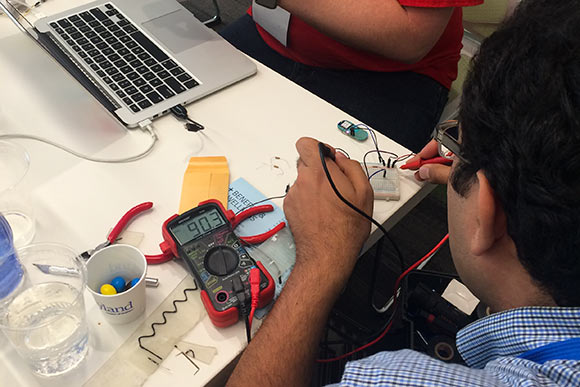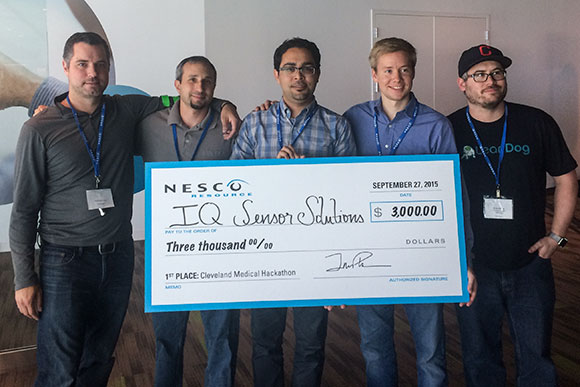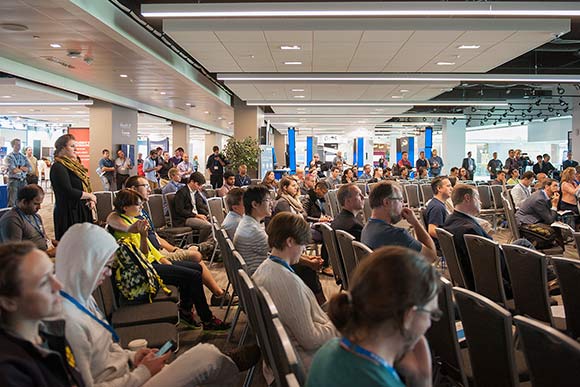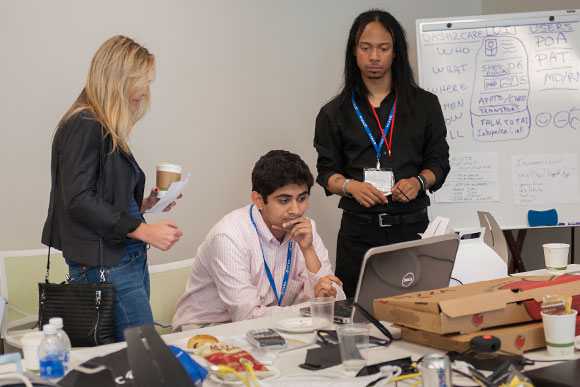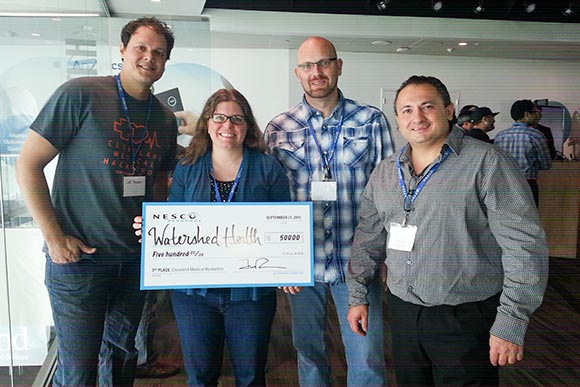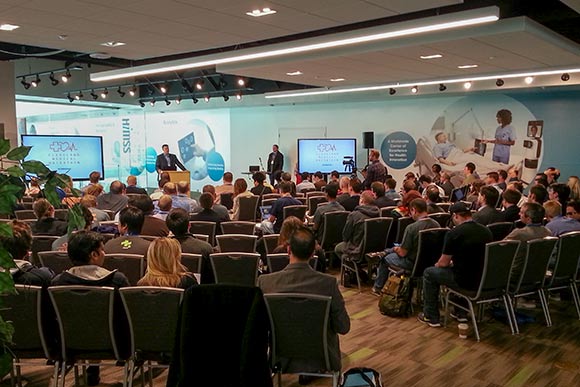First CLE MedHack brings innovative ideas to reality
Brains were on overdrive and sleep was a luxury at the first Cleveland Medical Hackathon on September 26th and 27th at the Global Center for Health Innovation. The 24-hour event, designed to leverage the region’s strength in healthcare against technology and diverse skills in medical innovation, drew 190 participants on 22 teams.
"It was so fantastic to see the diversity of solutions the teams were working on,” says Sunnie Southern, founder and CEO of Cincinnati’s Viable Synergy and one of the judges.
Three teams won prizes of $3,000, $1,500 and $500 for their solutions to healthcare issues.
The IQ Sensor Solutions team, comprised of industrial, medical and software experts from Rockwell Automation, the Cleveland Clinic, LeanDog, and the University of Akron, took first place for their creations of a wearable blood pressure cuff using flexible sensor technology. The device would eliminate the need for an air bag, take real time blood pressure measurements and report results back to the doctor for better accuracy in medications and monitoring.
“This was my first hackathon, and it was quite a rewarding experience for sure,” says Kyle Reissner with Rockwell. “It was fun.”
Reissner and his wife, who is a transplant nurse, had been talking about developing a device for patients on the transplant waiting list that would monitor their vitals and reduce the number of hospital visits they would need to make.
While the team did not fully develop a working prototype in the 24 hours the MedHack allowed, Reissner is excited at the potential. “We didn’t prove it can actually measure blood pressure, but if we solve this problem it will have a pretty big impact,” he says. “We still have to go further.
Team member Morteza Vatani of the University of Akron’s mechanical engineering department plans to move the technology forward, along with other flexible sensor applications in wearable electronics, with his recently formed Smart 3D Solutions.
Team NEO+Natal, with team members from DragonID, Arrow Electronics, Cleveland State, the University of Michigan and the Federal Reserve Bank of Cleveland, won second place with its development of an app to prevent infant mortality among at-risk expectant mothers.
The team developed a short questionnaire and a tablet app that allows community health workers to address risks and potentially save an unborn child’s life. The app also assigns each mother and community worker a unique pin number to coordinate follow up appointments and provide accountability.
DragonID lead engineer Ilya Malinskiy says the team members are all friends with a common interest in biomedical technology. “We decided this was the perfect opportunity for us,” he says. “We thought we’d go there, build some cool science and possibly win a prize.”
Malinskiy says they may pursue developing the app further in the near future.
The Watershed Health Project team, led by Carl Preusser, an expert with Cuyahoga County Board of Health (CCBH), other experts with the CCBH, Vitamix, KSU and the Cleveland Fed, developed a prototype for a mobile app that would monitor water quality, eliminating the need for paper and duplicate or erroneous data.
“This management tool will lead to more efficient reporting of potential communicable disease risks allowing citizens to enjoy the watershed and protect our vital drinking water resource,” says Preusser. “This will reduce duplicate data entry and reduce the response time from 30 days down to one day. Both street view and earth view of locations are given to the users, including the ability for routing, giving CCBH inspectors the ability to more accurately find location in remote areas.”
Southern appreciated all of the teams, but the three winners stood out. “I was very impressed with the diversity of the winners,” she says. “It was a great representative example of the 22 teams that participated. My hope for Cleveland is that this is the start of something awesome.”
Four other teams were recognized for their innovative ideas.
The event was sponsored by Nesco Resource and partners Cleveland Clinic, University Hospitals, CWRU, IngenuityCleveland, Flashstarts, MetroHealth System and BioEnterprise.


